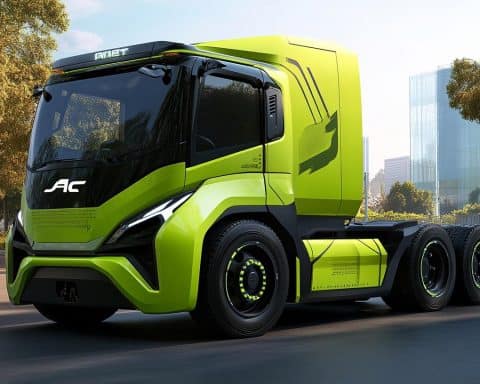Colorado is set to become the first state in the United States to launch a statewide electric bicycle tax credit program, aimed at promoting the use of eco-friendly transportation. Governor Polis recently announced that starting from April 1, 2024, residents of Colorado will be eligible for a $450 discount at the point of sale when purchasing an e-bike from participating retailers. This program, part of House Bill 23-1272, marks a significant milestone in the state’s efforts to advance decarbonization.
Unlike previous local programs, this statewide initiative is inclusive, covering all residents of Colorado. It not only offers a discount on commuter e-bikes but also includes electric mountain bikes, providing a wider range of options for consumers. The hope is that this incentive will make e-bikes more accessible to a larger population, presenting a viable alternative to driving vehicles and reducing carbon emissions.
While the program has garnered praise for its efforts to promote sustainable transportation, some questions have been raised regarding certain aspects. Critics wonder why the incentive only applies to new e-bikes and not used bikes or standard pedal bikes. Additionally, there is curiosity about the possibility of combining this incentive with other existing offers related to the purchase of a new e-bike, as well as concerns about online purchases.
The definition of an electric bicycle, as outlined in the Colorado Revised Statute, includes electric adaptive bicycles. These e-bikes must conform to one of the three established e-bike classes. This ensures that the tax credit program covers a wide range of e-bikes suitable for various terrains, including road, dirt, and gravel.
As the popularity of e-bikes continues to grow, these vehicles have become a favored choice among outdoor enthusiasts. E-bikes not only make commuting easier but also extend the duration of rides and make uphill routes more manageable. This tax credit program aims to capitalize on this growing trend and encourage more Coloradans to embrace sustainable modes of transportation.
For further information on qualified retailers and additional details about the state’s e-bike tax credit program, interested individuals can refer to the full text of the signed bill provided here. By implementing such initiatives, Colorado takes a significant step towards a greener and more sustainable future.
The electric bicycle industry has experienced significant growth in recent years, driven by increasing interest in sustainable transportation options. According to a report by Market Research Future, the global electric bicycle market is expected to reach a value of $40 billion by 2023, with a compound annual growth rate (CAGR) of approximately 7% during the forecast period.
Colorado’s decision to launch a statewide electric bicycle tax credit program aligns with this trend and highlights the growing importance of e-bikes as a viable mode of transportation. By offering a $450 discount at the point of sale, the program aims to make e-bikes more affordable and attractive to a wider range of consumers.
One of the key benefits of the program is its inclusivity. Unlike previous local initiatives, which were limited to specific cities or regions, this statewide program covers all residents of Colorado. This ensures that individuals across the state have equal access to the tax credit and the opportunity to embrace eco-friendly transportation.
In addition to commuter e-bikes, the program also includes electric mountain bikes. This expansion of eligible bike types recognizes the growing popularity and versatility of e-bikes among outdoor enthusiasts. Whether for daily commuting or off-road adventures, e-bikes offer enhanced mobility and convenience while reducing carbon emissions.
However, the program does face some criticism and questions. Critics question why the tax credit only applies to new e-bikes and not used bikes or standard pedal bikes. Some argue that extending the incentive to used e-bikes could further promote sustainable transportation by incentivizing the purchase of pre-owned electric bicycles. There are also concerns about online purchases and whether they would be eligible for the tax credit.
It remains to be seen how the program will be received and if any adjustments will be made based on feedback and evaluation. Nonetheless, the introduction of the statewide electric bicycle tax credit program is a significant step towards promoting sustainable transportation in Colorado and encouraging the adoption of eco-friendly alternatives to traditional vehicles.
For more information about the tax credit program, interested individuals can refer to the full text of House Bill 23-1272, which provides details on qualified retailers and other essential aspects of the initiative.
















